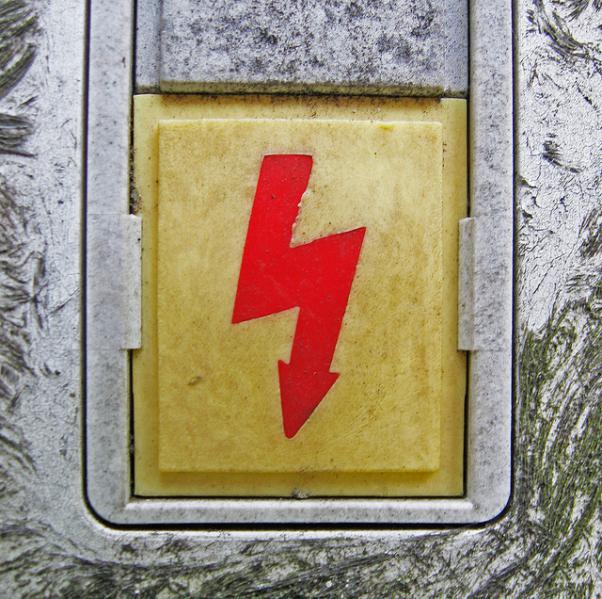Keeping Your Child Safe at Home
Filed under:
Family

    |
You can’t restrict your child’s curiosity.
If you have a toddler stumbling around the house, then it’ll be only natural for them to want to get familiar with their surroundings, and touch everything and anything to get a feel for what is available to them. Children are naturally inquisitive but aren’t fully aware of the dangers of electricity. With your children growing up in the technological generation, electricity is everywhere, and powers a vast majority of our day-to-day lives. This is why it’s vital to educate them so that they understand the dangers of electricity and the precautions they should take. Of course you don’t want to completely frighten them, but teaching them the basics about the power of electricity can keep them safe, and give you some peace of mind too.
Making the Area Safe first
Before you educate your children, it’s important that you are aware of the risks of electricity yourself, and hence make your house the safest environment possible for your kids. You can take precautions like:
Don’t overload sockets
Never ignore warning signs such as burning smells or unusual noises
Check the plug and sockets to see if there are any burn marks
Immediately replace any cords that are looking frayed or damaged
Use plugs with the British standard safety mark as they have features that allow you to pull plugs in and out of sockets easily
If you have really young kids, purchase some safety plugs so that sockets aren’t readily available to toddlers
Make sure you switch off plug sockets when they aren’t being used.
Check your appliances
Take the time to have a look at your appliances yourself to see if they are safe. It’s often possible to see when your appliances look unsafe at a glance. For example, if the cords are looking frayed or if there are any burn-marks on the sockets. If any of your electrical cords are looking this way, don’t try and ‘patch’ them up yourself as this will only increase the danger for you and your family. If you don’t trust your own judgement, it’s always worth getting in an expert with electrical test equipment to double check your devices and replace them if needed.
Safety Lessons
Although electricity safety starts in the early years of school, it’s also important that you educate your kids at home as well. Make learning enjoyable by giving your children some fun activities to complete around electrical safety. There are lots of different child-friendly videos online on electrical safety, as well as interactive games and quizzes available on the internet that they can complete to help them remember important facts. Children who are a bit older will have some common sense on their shoulders, but in this case it really is better to be safe rather than sorry. Reminding them of little safety tips from time to time won’t do anyone any harm.
Set a Good Example
If you have a couple of bad electricity safety habits of you own, your children won’t know any better and just copy. For example if you decide to pull your toast out the toaster with a metal knife while the appliance is still plugged in, your child is only going to think this is the right thing to do. If you do make a couple of mistakes here and there however, highlight them to your child so they know what is right and what is wrong with a practical example in front of them to make it easier for them to understand and relate.
Try to use consistent language with them at all times when electricity is involved. If you underline how dangerous electricity actually is from a young age, it’ll be embedded in their minds from day one. This way, it’ll just be their natural instinct to approach electrical appliances with utmost care.
If you have a toddler stumbling around the house, then it’ll be only natural for them to want to get familiar with their surroundings, and touch everything and anything to get a feel for what is available to them. Children are naturally inquisitive but aren’t fully aware of the dangers of electricity. With your children growing up in the technological generation, electricity is everywhere, and powers a vast majority of our day-to-day lives. This is why it’s vital to educate them so that they understand the dangers of electricity and the precautions they should take. Of course you don’t want to completely frighten them, but teaching them the basics about the power of electricity can keep them safe, and give you some peace of mind too.
Making the Area Safe first
Before you educate your children, it’s important that you are aware of the risks of electricity yourself, and hence make your house the safest environment possible for your kids. You can take precautions like:
Don’t overload sockets
Never ignore warning signs such as burning smells or unusual noises
Check the plug and sockets to see if there are any burn marks
Immediately replace any cords that are looking frayed or damaged
Use plugs with the British standard safety mark as they have features that allow you to pull plugs in and out of sockets easily
If you have really young kids, purchase some safety plugs so that sockets aren’t readily available to toddlers
Make sure you switch off plug sockets when they aren’t being used.
Check your appliances
Take the time to have a look at your appliances yourself to see if they are safe. It’s often possible to see when your appliances look unsafe at a glance. For example, if the cords are looking frayed or if there are any burn-marks on the sockets. If any of your electrical cords are looking this way, don’t try and ‘patch’ them up yourself as this will only increase the danger for you and your family. If you don’t trust your own judgement, it’s always worth getting in an expert with electrical test equipment to double check your devices and replace them if needed.
Safety Lessons
Although electricity safety starts in the early years of school, it’s also important that you educate your kids at home as well. Make learning enjoyable by giving your children some fun activities to complete around electrical safety. There are lots of different child-friendly videos online on electrical safety, as well as interactive games and quizzes available on the internet that they can complete to help them remember important facts. Children who are a bit older will have some common sense on their shoulders, but in this case it really is better to be safe rather than sorry. Reminding them of little safety tips from time to time won’t do anyone any harm.
Set a Good Example
If you have a couple of bad electricity safety habits of you own, your children won’t know any better and just copy. For example if you decide to pull your toast out the toaster with a metal knife while the appliance is still plugged in, your child is only going to think this is the right thing to do. If you do make a couple of mistakes here and there however, highlight them to your child so they know what is right and what is wrong with a practical example in front of them to make it easier for them to understand and relate.
Try to use consistent language with them at all times when electricity is involved. If you underline how dangerous electricity actually is from a young age, it’ll be embedded in their minds from day one. This way, it’ll just be their natural instinct to approach electrical appliances with utmost care.


